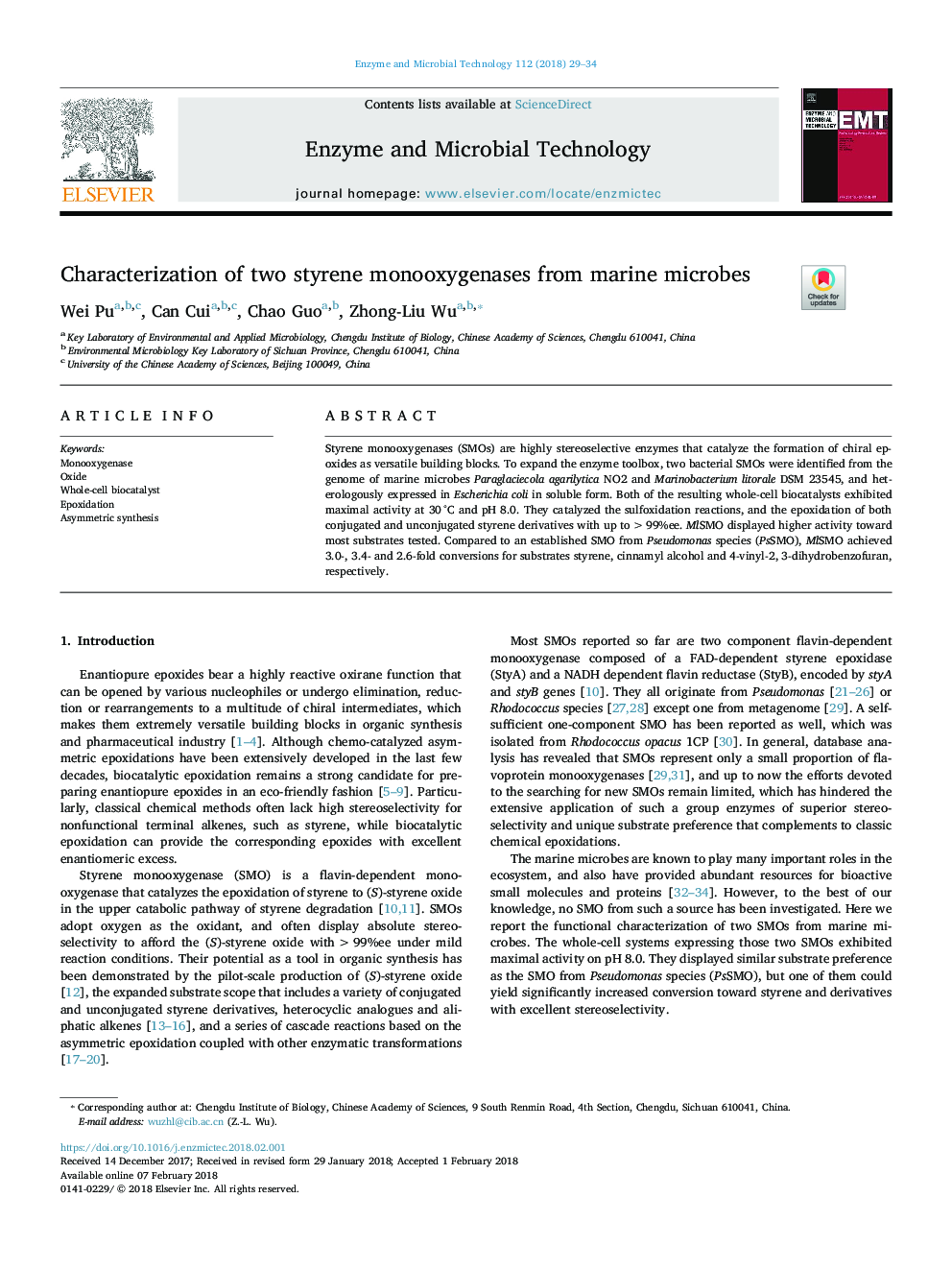| Article ID | Journal | Published Year | Pages | File Type |
|---|---|---|---|---|
| 6488142 | Enzyme and Microbial Technology | 2018 | 6 Pages |
Abstract
Styrene monooxygenases (SMOs) are highly stereoselective enzymes that catalyze the formation of chiral epoxides as versatile building blocks. To expand the enzyme toolbox, two bacterial SMOs were identified from the genome of marine microbes Paraglaciecola agarilytica NO2 and Marinobacterium litorale DSM 23545, and heterologously expressed in Escherichia coli in soluble form. Both of the resulting whole-cell biocatalysts exhibited maximal activity at 30â¯Â°C and pH 8.0. They catalyzed the sulfoxidation reactions, and the epoxidation of both conjugated and unconjugated styrene derivatives with up to >99%ee. MlSMO displayed higher activity toward most substrates tested. Compared to an established SMO from Pseudomonas species (PsSMO), MlSMO achieved 3.0-, 3.4- and 2.6-fold conversions for substrates styrene, cinnamyl alcohol and 4-vinyl-2, 3-dihydrobenzofuran, respectively.
Related Topics
Physical Sciences and Engineering
Chemical Engineering
Bioengineering
Authors
Wei Pu, Can Cui, Chao Guo, Zhong-Liu Wu,
